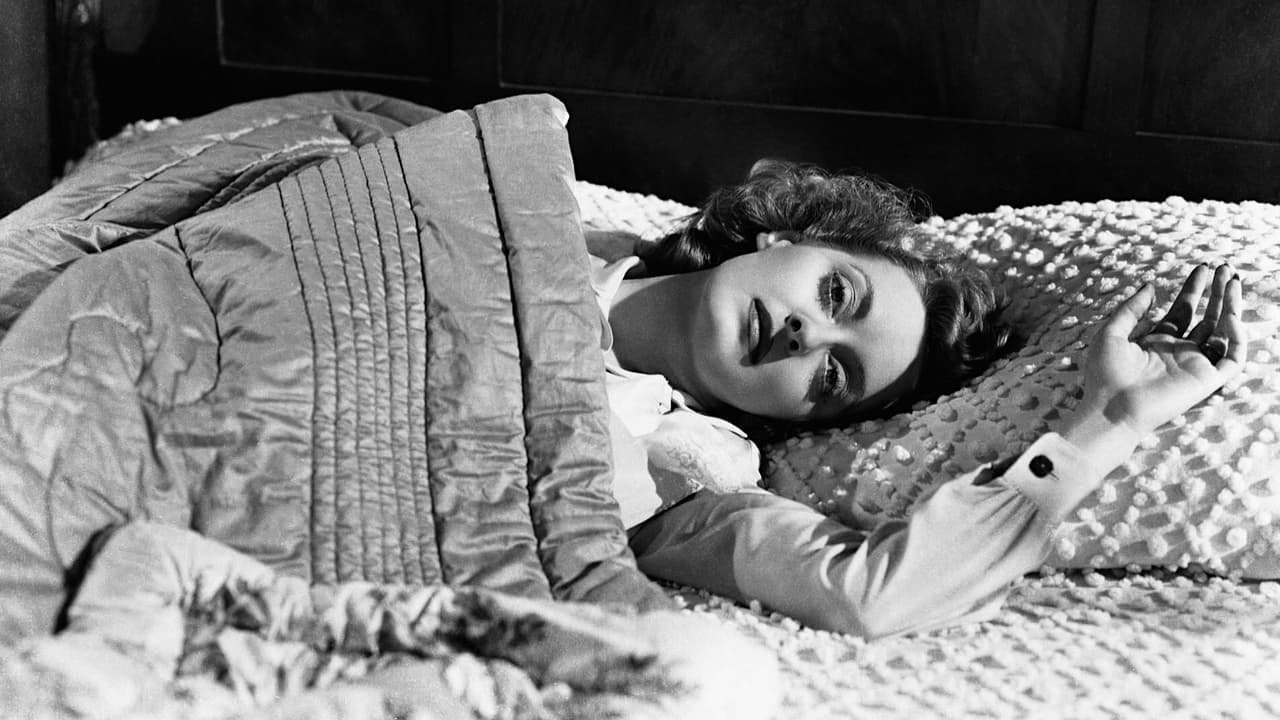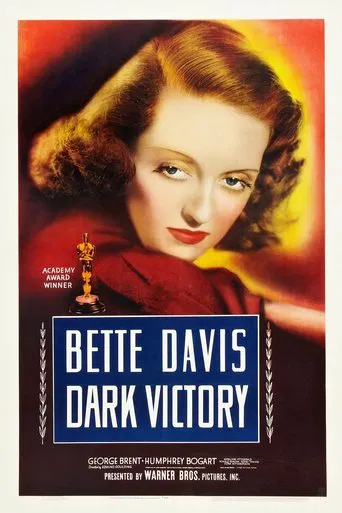

Best movie of this year hands down!
... View MoreMostly, the movie is committed to the value of a good time.
... View MoreThe movie really just wants to entertain people.
... View MoreThe film's masterful storytelling did its job. The message was clear. No need to overdo.
... View MoreJudith, played by Bette Davis to the absolute hilt (and I mean that in the most positive way) begins to experience headaches and blurred vision. She is having trouble doing things because her balance is off. George Brent plays a doctor who loves her, and puts his career on hold in hopes of helping her. Brain surgery is performed, but as is often the case, not all of the cancerous tissue can be removed without killing her. She is doomed to blindness and death. He, however, feels that she should not be told, so she can continue life in a positive and optimistic way. Dishonesty is not in her vocabulary and when she finds out, she resents what he has done, greatly. Humphrey Bogart works her horses (she is very rich) and admits that he has loved her forever. Unfortunately, we are talking about two different classes of people. Shouldn't be, but is. The conclusion is quite sad, but she is given the gift of knowing her fate.
... View MoreHaving fallen in love with a patient he is treating for chronic headaches, a young doctor becomes conflicted about whether he should tell her the truth about her condition after discovering that it is fatal in this sobering melodrama. George Brent is only adequate as the physician in question, however, Bette Davis offers a terrific turn as the dying woman, who goes from protesting "but I haven't time to be ill" to gradually accepting. She has some particularly good moments as she uncovers the secret that Brent is hiding from her and there are some interesting dynamics at hand as she mistakes all of her best friend's private conversations with Brent as romantic in nature when in fact they are discussing her terminal condition. Geraldine Fitzgerald is also excellent as the friend in question and the supporting cast features many recognisable faces (Ronald Reagan; Henry Travers) though the most recognisable of all is a sadly miscast Humphrey Bogart, playing an Irish (!) stableman who contributes little to the narrative. This is a more accomplished film than one might expect though given the standard of Hollywood melodrama in the 1930s. The romance never quite clicks thanks to Brent's less-than-stellar performance, however, the film brings with it plenty to ponder in terms of dignity in death and learning to accept the inevitable. The denouement of the film is well-handled too; the film is a bit of a 'downer', but at least there are no unrealistic miracles in the mix as the film sublimely portrays the dignity one human being manages to have whilst preparing for the end.
... View MoreIn terms of best male actor of all time, for me it's a tie between Spencer Tracy and Cary Grant. For best female actor, no question in my mind -- Bette Davis. And her talents are well displayed in this, which was said to be her favorite film.I want to start out by saying that if you already have the DVD, I don't recommend updating to the Blu Ray version. I'm not sure there's significant improvement.This film is another of the famous pairings of Bette Davis and George Brent. I actually think this is one of the better ones because there's more of a story to Brent's character here than sometimes occurred. He's a doctor with some expertise in brain problems, who is about to go off on medical research. He is persuaded to postpone his trip to look after Bette Davis' spoiled rich girl character, who is having symptoms of dizziness, headaches, and double vision. Early in the film it's almost impossible to have much sympathy for her character. But, we also know that some of her impertinent behavior is a result of her fear. My sympathy for the character began when she received the diagnosis -- I've been there, done that, although in my case both times it was good news...which was not expected. But the fear was immense while waiting for the prognosis.There are several supporting actors worth mentioning. Geraldine Fitzgerald is very good as the best friend. Humphrey Bogart has an odd role as a stable man with an Irish accent. The role is often criticized, but this was back when he was still a supporting actor; he was paying his dues to the studio here. Ronald Reagan has a nothing role as a slightly tipsy friend; I can't believe it helped his career. Henry Travers is good (as always) as the country doctor who persuades George Brent to take Davis' case.A major portion of the film is the love conquers all stuff...although, of course, in this case it doesn't. But it is a good example of how people can sometimes fool themselves about the future.The death scene in remarkably well done from an emotional standpoint. In my view, one of the great moments in film.The one part of the film that just doesn't work for me is Humphrey Bogart's main scene. To me it just doesn't work. Not because of the character's Irish accent, but just because it seems inane. I think the problem with the scene is that the groundwork of it is not laid, and then Bogart tries to seduce Davis, not knowing that she is dying. I think it's the one significant flaw in the film. Well, other than Ronald Reagan's empty performance.One of the bonuses on the Blu Ray edition is a short documentary sort of lamenting that this film, or Bette's performance did not win the Academy Award. However, the year was 1939, the year often considered the year that the finest films in Hollywood's history were made, including "Gone With The Wind". "Dark Victory" is a wonderful film and Bette Davis' performance is memorable. But neither the film nor the performance could complete with "GWTW" or "The Wizard Of Oz", or several others.Even despite the fact that Davis is my favorite actress, this film was very memorable to me. When I decided to upgrade to Blu Ray (a waste), I delayed ordering this film because I was expecting a bad diagnosis, It was only after the green light that I had the nerve to order the film. The death scene is that memorable.
... View MoreThis is a great movie because it avoids sentimentality and because of the performance by Bette Davis in what has to be one of the best roles of her career. Ms. Davis completely dominates the movie and because of her the movie avoids becoming hokey or corny. Her performance is superb and she carries the movie. The story itself is strong and compelling and deals candidly with many sensitive themes. The plot is highly dramatic but avoids becoming melodramatic as Ms. Davis' character, Judith, struggles to come to terms with serious issues relating to life and death. The movie is filmed in a film-noir style that predates the emergence of that genre by several years. George Brent and Geraldine Fitzgerald are also give wonderful performances in supporting roles, and they are supportive roles because this film has one star and that star is Bette Davis.
... View More